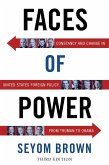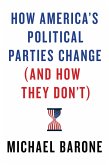Drawing on twenty-four years of experience in government, Michael H. Armacost explores how the contours of the U.S. presidential election system influence the content and conduct of American foreign policy. He examines how the nomination battle impels candidates to express deference to the foreign policy DNA of their party and may force an incumbent to make wholesale policy adjustments to fend off an intra-party challenge for the nomination. He describes the way reelection campaigns can prod a chief executive to fix long-neglected problems, kick intractable policy dilemmas down the road, settle for modest course corrections, or scapegoat others for policies gone awry.
Armacost begins his book with the quest for the presidential nomination and then moves through the general election campaign, the ten-week transition period between Election Day and Inauguration Day, and the early months of a new administration. He notes that campaigns rarely illuminate the tough foreign policy choices that the leader of the nation must make, and he offers rare insight into the challenge of aligning the roles of an outgoing incumbent (who performs official duties despite ebbing power) and the incoming successor (who has no official role but possesses a fresh political mandate). He pays particular attention to the pressure for new presidents to act boldly abroad in the early months of his tenure, even before a national security team is in place, decision-making procedures are set, or policy priorities are firmly established. He concludes with an appraisal of the virtues and liabilities of the system, including suggestions for modestly adjusting some of its features while preserving its distinct character.
Armacost begins his book with the quest for the presidential nomination and then moves through the general election campaign, the ten-week transition period between Election Day and Inauguration Day, and the early months of a new administration. He notes that campaigns rarely illuminate the tough foreign policy choices that the leader of the nation must make, and he offers rare insight into the challenge of aligning the roles of an outgoing incumbent (who performs official duties despite ebbing power) and the incoming successor (who has no official role but possesses a fresh political mandate). He pays particular attention to the pressure for new presidents to act boldly abroad in the early months of his tenure, even before a national security team is in place, decision-making procedures are set, or policy priorities are firmly established. He concludes with an appraisal of the virtues and liabilities of the system, including suggestions for modestly adjusting some of its features while preserving its distinct character.
Dieser Download kann aus rechtlichen Gründen nur mit Rechnungsadresse in A, D ausgeliefert werden.









